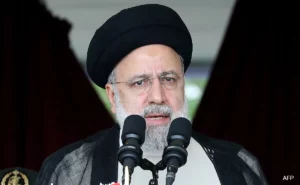Recent Developments in the Pavel Durov Arrest Case: Implications for Tech and Privacy

Pavel Durov
Recent developments surrounding the arrest of Pavel Durov, the founder and CEO of Telegram, have stirred significant attention and debate globally. Here’s a comprehensive overview of the situation.
Arrest Details
On August 25, 2024, Pavel Durov was arrested at Le Bourget Airport in France after arriving from Azerbaijan. He faces serious allegations, including complicity in the distribution of child pornography, drug trafficking, and fraud, all purportedly facilitated by Telegram’s lack of adequate content moderation123. Following four days in custody, he was released on a €5 million bail, but remains under strict conditions, including reporting to police twice a week and not leaving France14.
Legal Context
Durov’s arrest is part of a broader scrutiny of tech companies regarding their responsibilities in monitoring illegal activities on their platforms. French authorities claim that Telegram has been used for various illicit activities due to its encryption and privacy features, which have historically protected user data but also enabled criminal behavior125. The legal proceedings are ongoing, with French prosecutors continuing to investigate the allegations against Durov and Telegram1.
Reactions and Implications
The arrest has sparked a wide range of reactions:
- Support for Durov: Prominent figures, including Elon Musk, have expressed solidarity with Durov, highlighting concerns over free speech and governmental overreach. Musk’s tweet with the hashtag #FreePavel reflects a growing sentiment among advocates for digital rights25.
- Political Backlash: In Russia, there has been significant outcry from various political factions. Some officials view the arrest as politically motivated, suggesting it reflects a double standard regarding freedom of speech in the West. Former Russian President Dmitry Medvedev commented on Durov’s miscalculation in leaving Russia, indicating that his actions may have rendered him vulnerable to such legal challenges46.
- Telegram’s Defense: In response to the allegations, Telegram has vigorously defended its practices, asserting that it complies with EU laws and that its moderation efforts are consistent with industry standards. The platform has labeled the accusations against Durov as “absurd,” emphasizing that it is not responsible for how users may misuse its services124.
Broader Implications
Durov’s case highlights critical issues at the intersection of technology, law enforcement, and user privacy. As governments worldwide increase pressure on tech companies to regulate content more strictly, this incident raises questions about the balance between user privacy rights and societal safety concerns. The outcome of Durov’s legal battles could set significant precedents for how messaging platforms operate under scrutiny from authorities135.As this situation unfolds, it will be essential to monitor both the legal developments surrounding Pavel Durov and the broader implications for tech governance and user rights globally.





